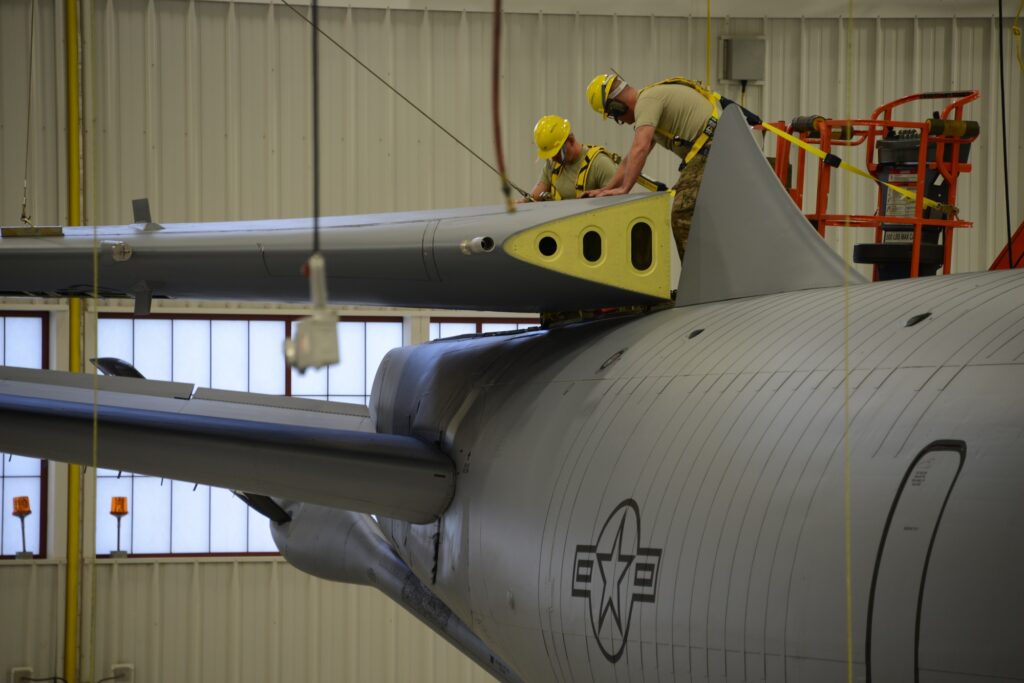The US Air Force grounded its fleet of KC-135 Stratotanker aircraft after a defective part was found in the empennage.
According to a leaked memo from the USAF, a metallurgic inspection conducted in January 2023 found that vertical terminal fitting pins, purchased from a supplier between 2020 and 2022, were found to be from the wrong material, too small, and with insufficient plating.
“The aft vertical terminal fittings carry approximately 90% of the load in the vertical stabilizer,” the memo, which the USAF confirmed as authentic to Defense News, explains. “Should one pin fail, the other would not be able to carry the remaining load and the vertical stabilizer would depart the aircraft.”
207 aircraft are potentially affected. The RC-135 reconnaissance aircraft and the WC-135 Constant Phoenix, specialized in detecting radioactive particles in the atmosphere, are also at risk. KC-135 tankers operated by other nations such as France, Singapore, or Turkey are unaffected.
Consequently, the USAF ordered all aircraft to undergo a technical inspection before their next flight.
“We’re taking this action out of an abundance of caution, after consulting with our engineering experts,” said Colonel Michael Kovalchek, senior materiel leader with the USAF Life Cycle Management Center’s legacy tanker division. “We are working closely with Air Mobility Command and all operational users and anticipate all potentially affected aircraft will be inspected.”
Of the first 90 aircraft that have already undergone technical verification as of 12, 2023, 24 were found to be fitted with the non-confirming pins. These airplanes were allowed to conduct a single flight to their repair station. The other 66 were authorized to resume operational flights.
The Boeing KC-135 Stratotanker tanker aircraft, which entered service with the USAF in the 1950s, is being progressively replaced by the Boeing KC-46A Pegasus. However, the latter was not spared by design and production defects either, delaying its operational deployment.

